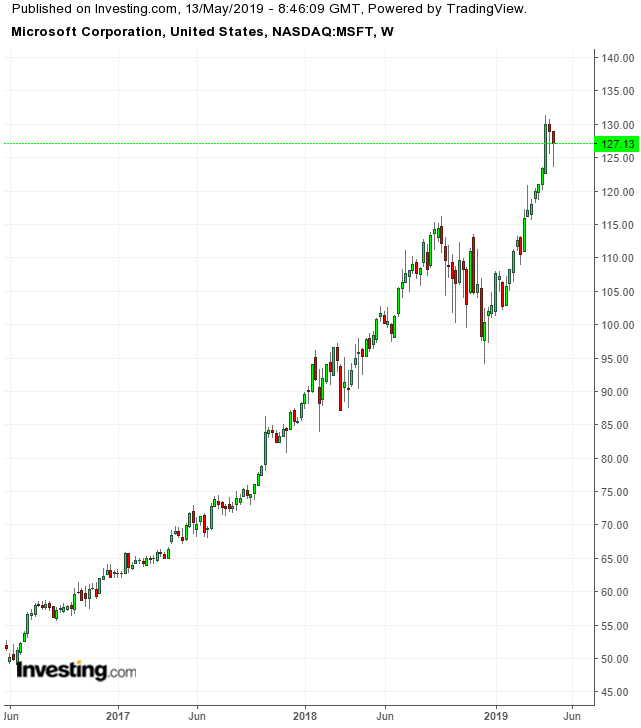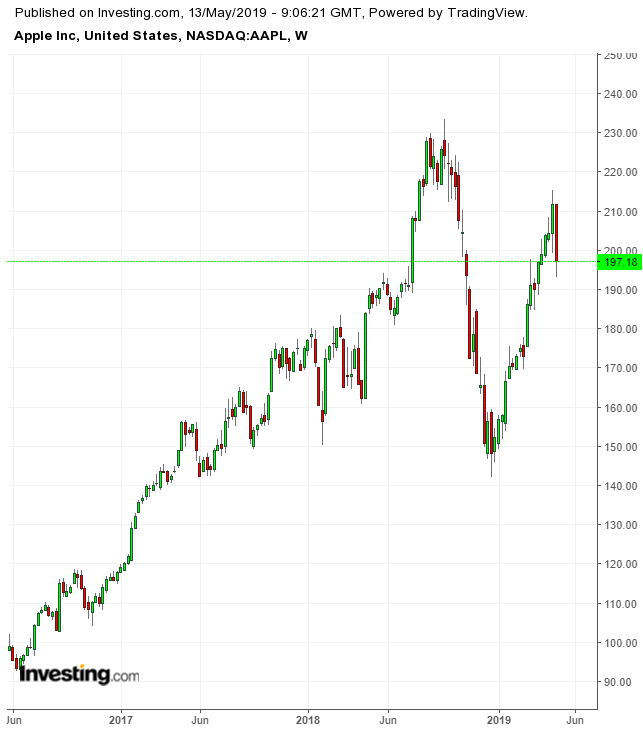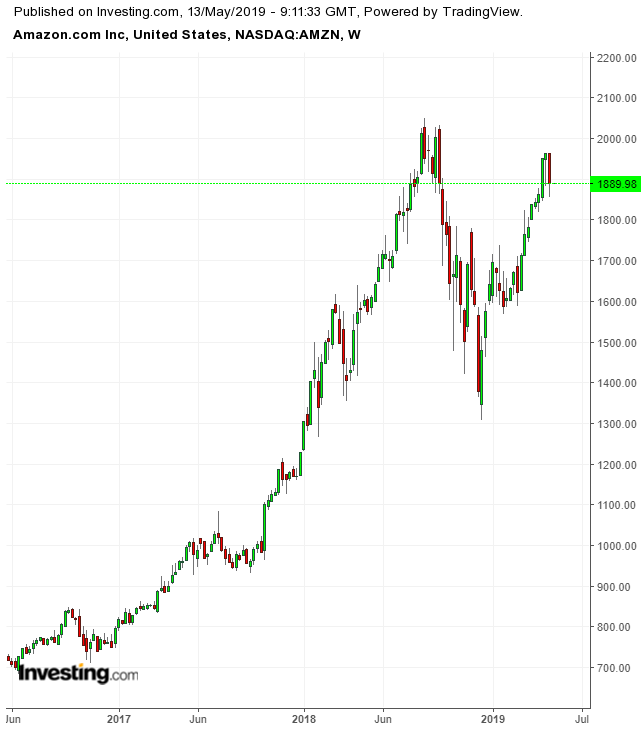On April 30 of this year, without too much fanfare, Microsoft's (NASDAQ:MSFT) market capitalization topped $1 trillion for the first time. The Redmond, WA-based software giant was the third U.S. company to reach that lofty market cap after Apple (NASDAQ:AAPL) and Amazon (NASDAQ:AMZN) hit that mark last summer and fall respectively.

On May 1, propelled by a strong earnings report and solid guidance, Apple shares jumped, pushing its market cap above $1 trillion for the second time in a year.

But the ascension was short-lived: the stock pulled back abruptly in the afternoon, taking both Apple and Microsoft below the $1 trillion threshold.
One conclusion from all this is relatively straightforward. As hard as it is for a company's market cap to reach $1 trillion, the time spent at that lofty valuation can be fleeting, as Microsoft and Apple saw on May 1.

Amazon achieved its $1 trillion market cap in Oct. 4, 2018 but fell back by the end of the day's trade. (In fairness, Apple sported a market cap above $1 trillion from Aug. 2 through Nov. 5, but then its shares fell 36% between Oct.3 and the Christmas Eve rout on Dec. 24.)
Signaling a Near-Term Top?
A second conclusion may need more scrutiny. At least for now, companies topping $1 trillion in market valuation seem to be telling investors that equities have reached a near-term top and may be about to fall. Both Apple and Amazon topped $1 trillion during the summer; the market broke badly starting in early November.
Microsoft and Apple topped $1 trillion together on April 30 and May 1. The S&P 500 hit an all-time high on May 1, but fell 2.5% between May 1 and this past Friday. The NASDAQ is down 3.2% over the same period. The NASDAQ 100 Index is down 3.4%. On Friday, the Dow was off 3.75% from its peak.
Futures are signaling stocks could open weaker on Monday.
Of course, Apple and Microsoft may not be the specific selling triggers. The China trade fight and computer-generated buying combined are more likely the culprits setting up the conditions for some selling. How serious it will be is unknown as we go to press. The computer-generated buying seems mostly to view a company's fundamentals as something smaller than the momentum of its stock
But the prices of Apple, Microsoft and Amazon don't operate in a vacuum. All three are affected by the trade war. Apple manufactures almost all its products in China. Microsoft manufactures its Surface tablets, game consoles and related product in Asia, primarily China, and Amazon's Alexa and Kindle devices are made in China and across Asia. As well, China is an extremely important market for all three companies.
It might seem like a stretch to say these three stocks can signal where markets are headed. But in truth, trillion-dollar size begets influence.
Microsoft and Apple represent 25% of the market capitalization of the Dow Jones Industrials. Microsoft, Apple and Amazon carry the three biggest weights among stocks listed on the S&P 500 and the trio represent 30% or more of the total market cap of the stocks on the NASDAQ 100. Throw in Google (NASDAQ:GOOGL), Intel (NASDAQ:INTC), Cisco (NASDAQ:CSCO) and Facebook (NASDAQ:FB) and you've accounted for half of the market weighting of the index.
So, watch those trillion-dollar babies. They have a lot more to say than you'd initially expect.
